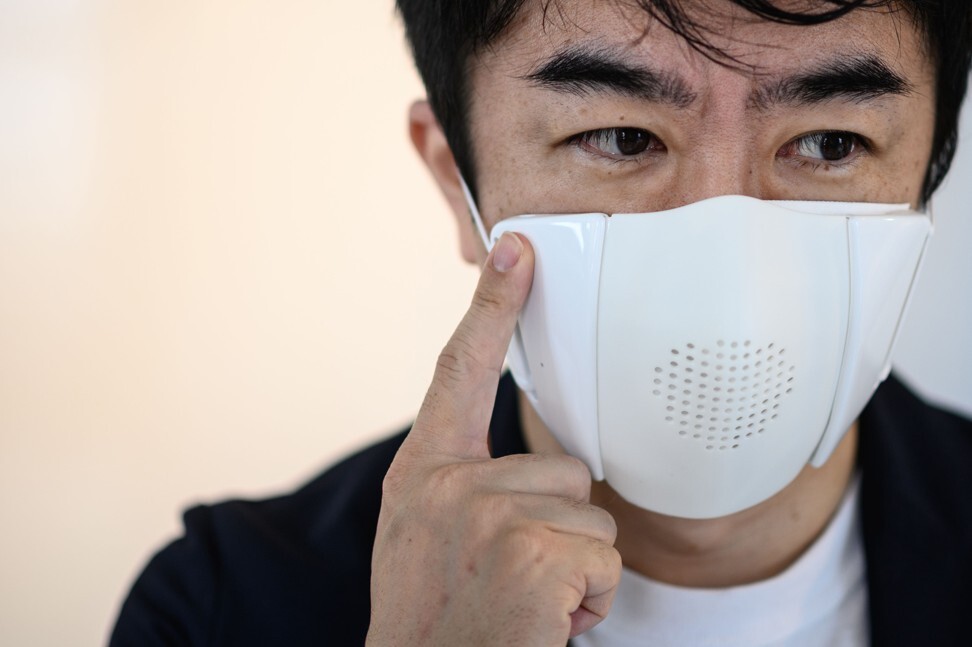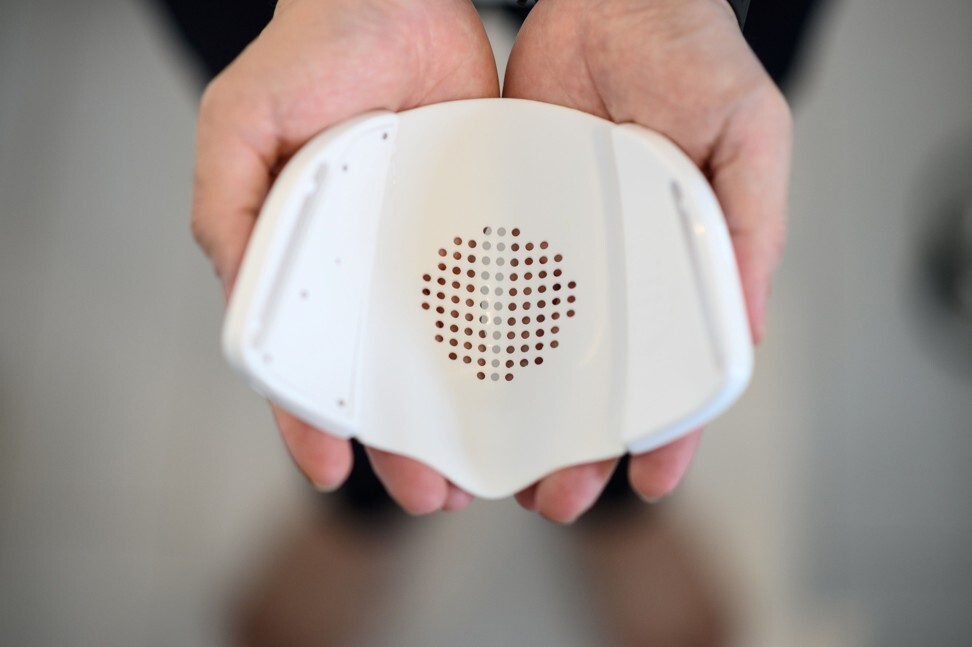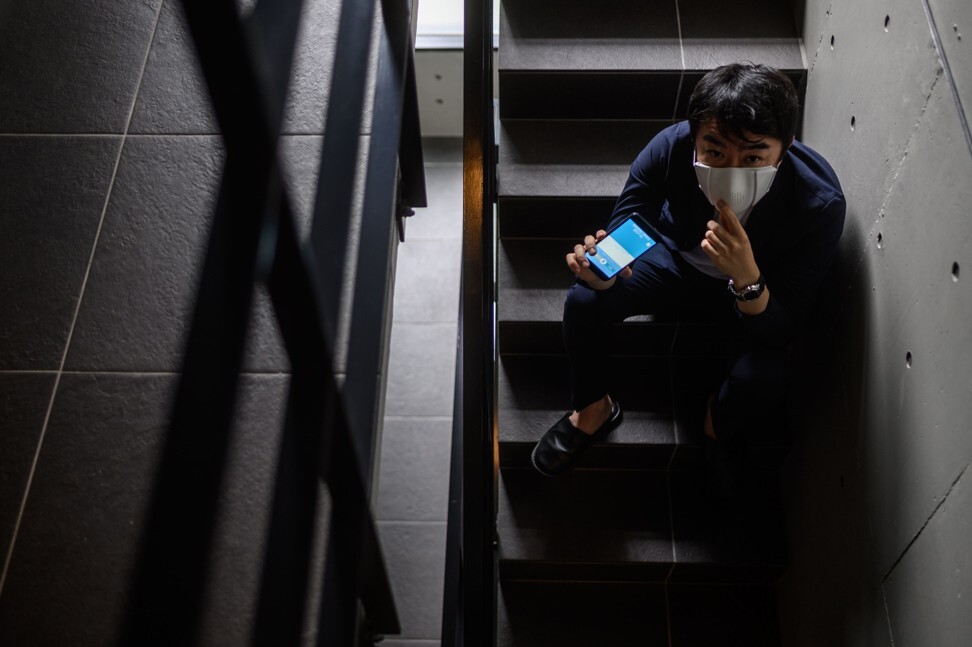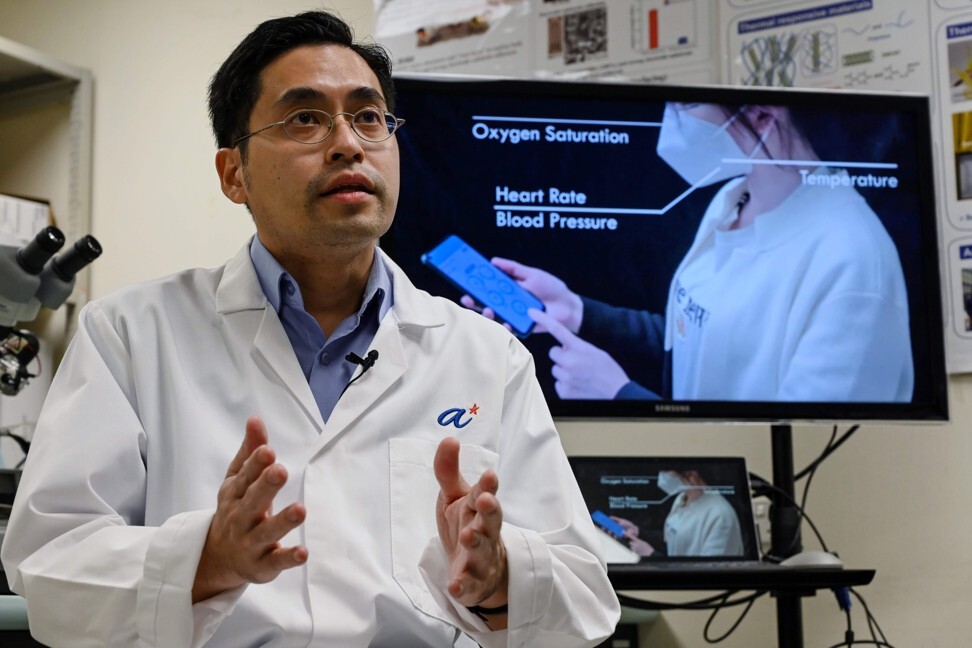
Face masks go hi-tech amid the Covid-19 pandemic, from one with a translator to another that monitors vital signs
- A Japanese start-up has created a face covering that allows people to have a conversation while keeping up to 10 metres apart – and also acts as a translator
- A Singaporean face mask has sensors that monitor temperature and blood oxygen levels, while a company in South Korea has made an air purifier mask
Tech companies and researchers are rolling out weird and wonderful models to both guard against infection and cash in on a growing trend.
One of the wackiest comes from Japan, where start-up Donut Robotics has created a face covering that helps users adhere to social distancing and also acts as a translator.
The “C-Face” mask works by sending a wearer’s speech to a smartphone via an app, and allows people to have a conversation while keeping up to 10 metres (32 feet) apart.

“Despite the coronavirus, we sometimes need to meet directly with each other,” says Donut Robotics chief executive Taisuke Ono.

However, it does not offer protection from Covid-19 on its own; rather it is designed to be worn over a regular face covering when it goes on sale in February for about 4,000 yen (US$40).
Donut Robotics raised nearly 100 million yen (US$950,000) via crowdfunding to develop it, a success Ono believes was driven by a desire for innovations to make life easier during the pandemic.
“We may be able to fight the virus with technology, with human wisdom,” he says.

Another face mask developed in Singapore is aimed at protecting doctors treating Covid-19 patients. It has sensors that monitor body temperature, heart rate, blood pressure and blood oxygen levels, and relay data to a smartphone via a Bluetooth transmitter.
Its inventors say the device could also monitor vital signs of migrant workers in crowded dormitories, which incubated massive virus outbreaks in the city state this year. They hope to trial it in the near future and market it commercially.

The futuristic white device, which fits snugly around the wearer’s mouth, nose and chin, is equipped with two filters on either side, and fans to aid airflow. The filters are similar to those in the company’s home air purifiers, and can supposedly block 99.95 per cent of harmful particles.
Thousands have already been made available to medical staff and it will also be rolled out in shops in the future, the company says.

.png?itok=arIb17P0)